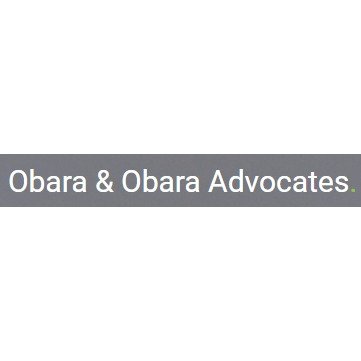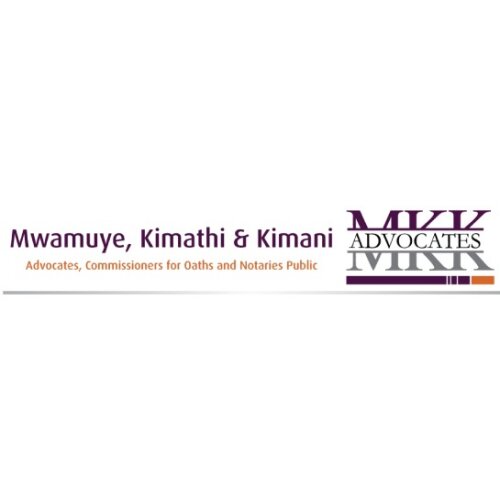Best Tax Lawyers in Kisumu
Share your needs with us, get contacted by law firms.
Free. Takes 2 min.
List of the best lawyers in Kisumu, Kenya
About Tax Law in Kisumu, Kenya
Tax law in Kisumu, Kenya, is governed by national legislation under the Kenya Revenue Authority (KRA), which is responsible for assessing, collecting, and accounting for all revenues. Kisumu, being one of the prominent cities in western Kenya, follows the general tax framework set out by the national laws, with specifics often focusing on the needs of businesses and residents in the region. Types of taxes applicable in Kisumu include income tax, value-added tax (VAT), customs and excise duties, and property taxes, among others. These taxes fund government operations and public services, making compliance crucial for individuals and businesses alike.
Why You May Need a Lawyer
There are several situations where consulting a tax lawyer can be beneficial in Kisumu, Kenya. One common scenario is dealing with tax audits or disputes with the Kenya Revenue Authority, where a professional can help negotiate and resolve issues. Business owners may also require legal assistance to ensure compliance with tax regulations, including advice on optimal tax structures. Individuals facing complex tax situations such as inheritance or expatriate taxes may also seek legal guidance. Additionally, changes in tax laws can impact financial planning and reporting, necessitating expert advice to avoid penalties.
Local Laws Overview
Kisumu, like the rest of Kenya, adheres to the Income Tax Act and the VAT Act, which mandate tax obligations for individuals and businesses. Residents are subject to personal income tax on earnings, while businesses must register for VAT if they exceed certain turnover thresholds. Property tax is also levied within the city boundaries. Compliance with local government revenue obligations, such as single business permits, is essential for businesses operating in Kisumu. The expansion of online services by KRA has improved access to tax services, making it easier for residents to file returns and remit taxes digitally.
Frequently Asked Questions
What types of taxes are applicable in Kisumu?
The main taxes include income tax, VAT, customs and excise duties, property tax, and local government fees.
How can I register for a Personal Identification Number (PIN) in Kenya?
You can register online through the KRA's iTax portal, providing necessary identification documents such as your ID or passport.
What is the VAT rate in Kenya, and does it apply in Kisumu?
The standard VAT rate is 16%, which applies to goods and services consumed in Kisumu, like other parts of Kenya.
When are tax returns due for individuals and businesses?
For individuals, tax returns are due by June 30th each year. Businesses must file monthly VAT returns by the 20th of the following month.
What should I do if I disagree with a KRA assessment?
You can file an objection through the iTax system, and if unresolved, appeal to the Tax Appeals Tribunal.
How can I ensure my business complies with tax regulations?
Consulting with a tax professional to understand obligations and maintaining accurate financial records are key practices.
Are there any tax incentives for businesses in Kisumu?
Certain sectors, like manufacturing and export, can benefit from tax incentives under national programs to encourage investment.
What penalties exist for late tax payments in Kenya?
Late payments attract penalties and interest, typically a percentage of the unpaid tax, which accumulates over time.
Is tax advice from a lawyer necessary for real estate transactions?
Yes, due to complexities like capital gains tax and stamp duty, professional advice ensures compliance and optimal tax outcomes.
Can I get tax relief for educational expenses in Kenya?
Yes, educational relief can be claimed under certain conditions for fees paid for dependents attending recognized institutions.
Additional Resources
Here are some additional resources to aid in tax matters in Kisumu:
- Kenya Revenue Authority (KRA): The main body responsible for tax collection.
- Kisumu County Government: For local taxes and licenses.
- Law Society of Kenya: A directory of legal practitioners, including those specializing in tax law.
Next Steps
If you require legal assistance, start by identifying your specific tax issues. Consider consulting a tax lawyer knowledgeable about Kisumu's tax environment. Obtain recommendations or referrals from trusted sources. Schedule consultations to discuss your situation and understand potential implications. Legal professionals can guide you through complex tax matters, ensuring compliance and potentially saving you from significant penalties.
Lawzana helps you find the best lawyers and law firms in Kisumu through a curated and pre-screened list of qualified legal professionals. Our platform offers rankings and detailed profiles of attorneys and law firms, allowing you to compare based on practice areas, including Tax, experience, and client feedback.
Each profile includes a description of the firm's areas of practice, client reviews, team members and partners, year of establishment, spoken languages, office locations, contact information, social media presence, and any published articles or resources. Most firms on our platform speak English and are experienced in both local and international legal matters.
Get a quote from top-rated law firms in Kisumu, Kenya — quickly, securely, and without unnecessary hassle.
Disclaimer:
The information provided on this page is for general informational purposes only and does not constitute legal advice. While we strive to ensure the accuracy and relevance of the content, legal information may change over time, and interpretations of the law can vary. You should always consult with a qualified legal professional for advice specific to your situation.
We disclaim all liability for actions taken or not taken based on the content of this page. If you believe any information is incorrect or outdated, please contact us, and we will review and update it where appropriate.












